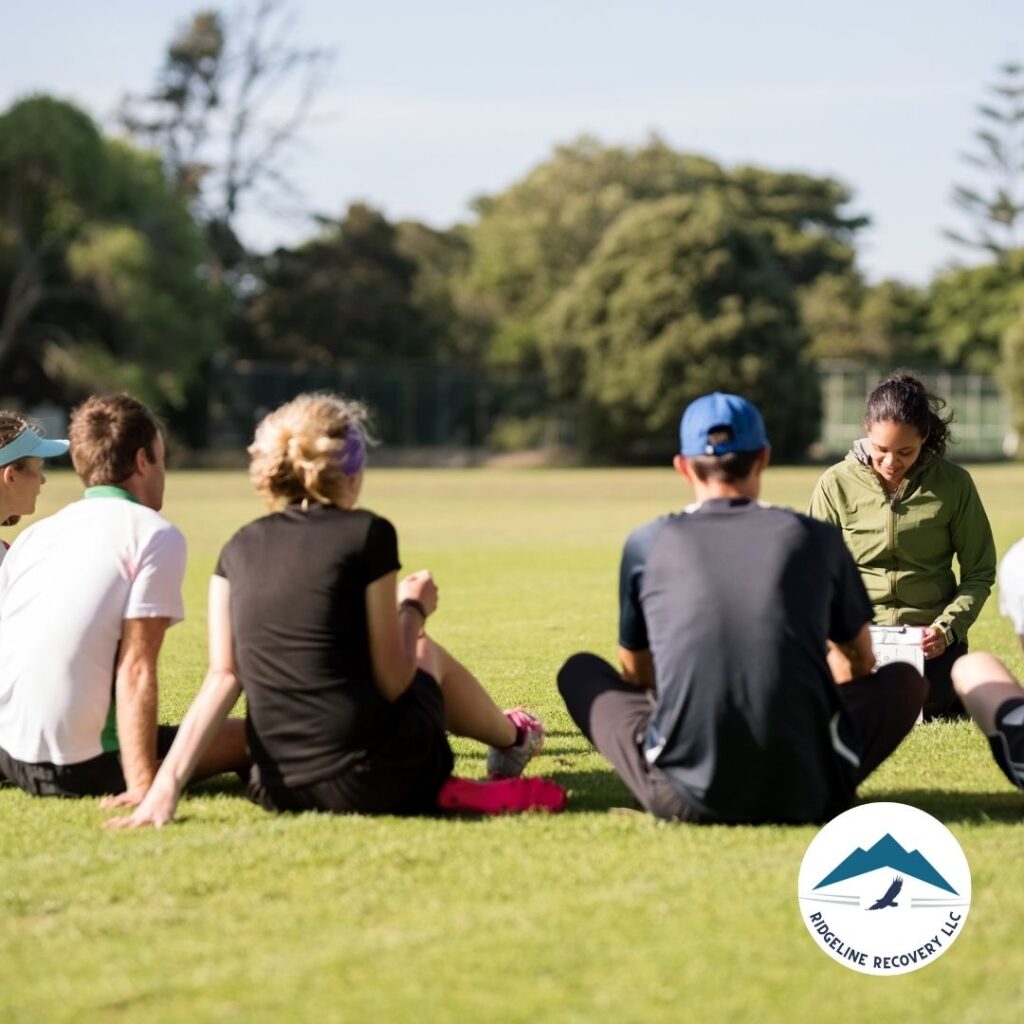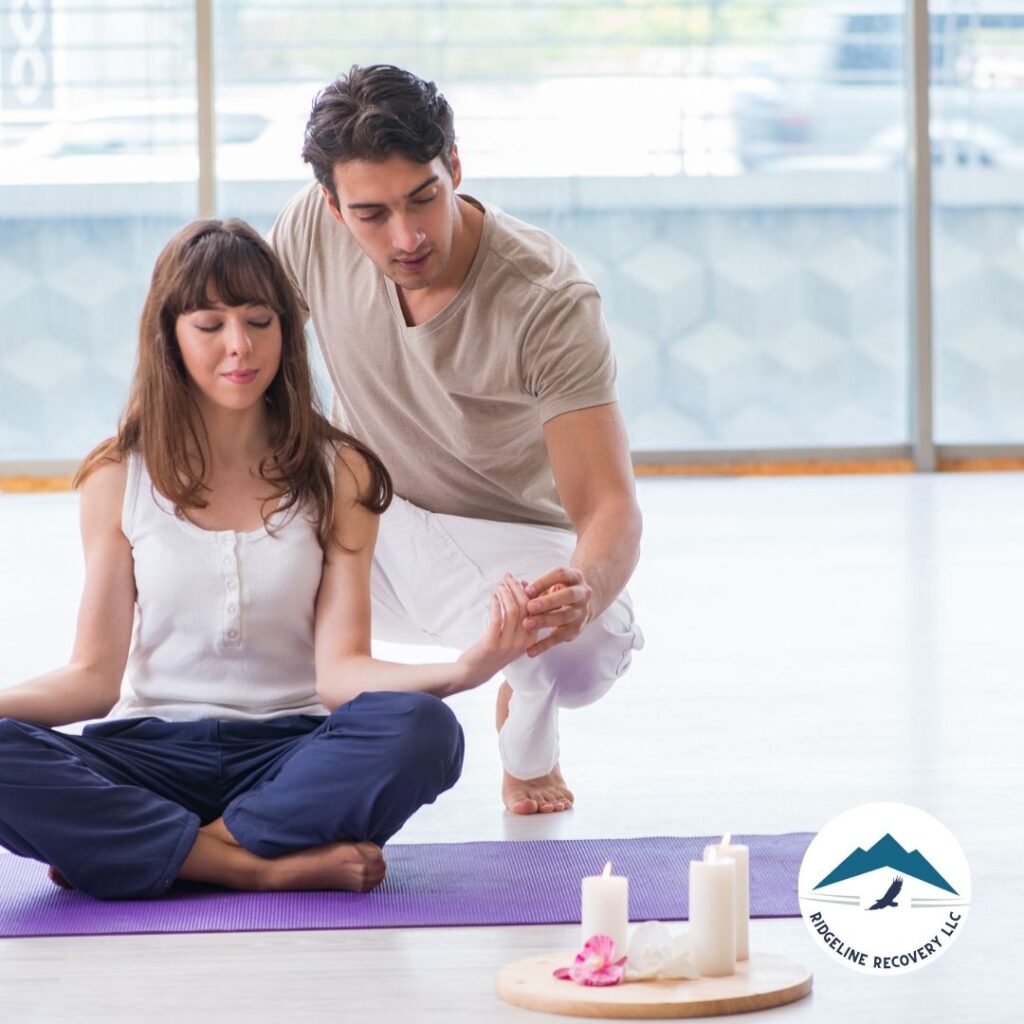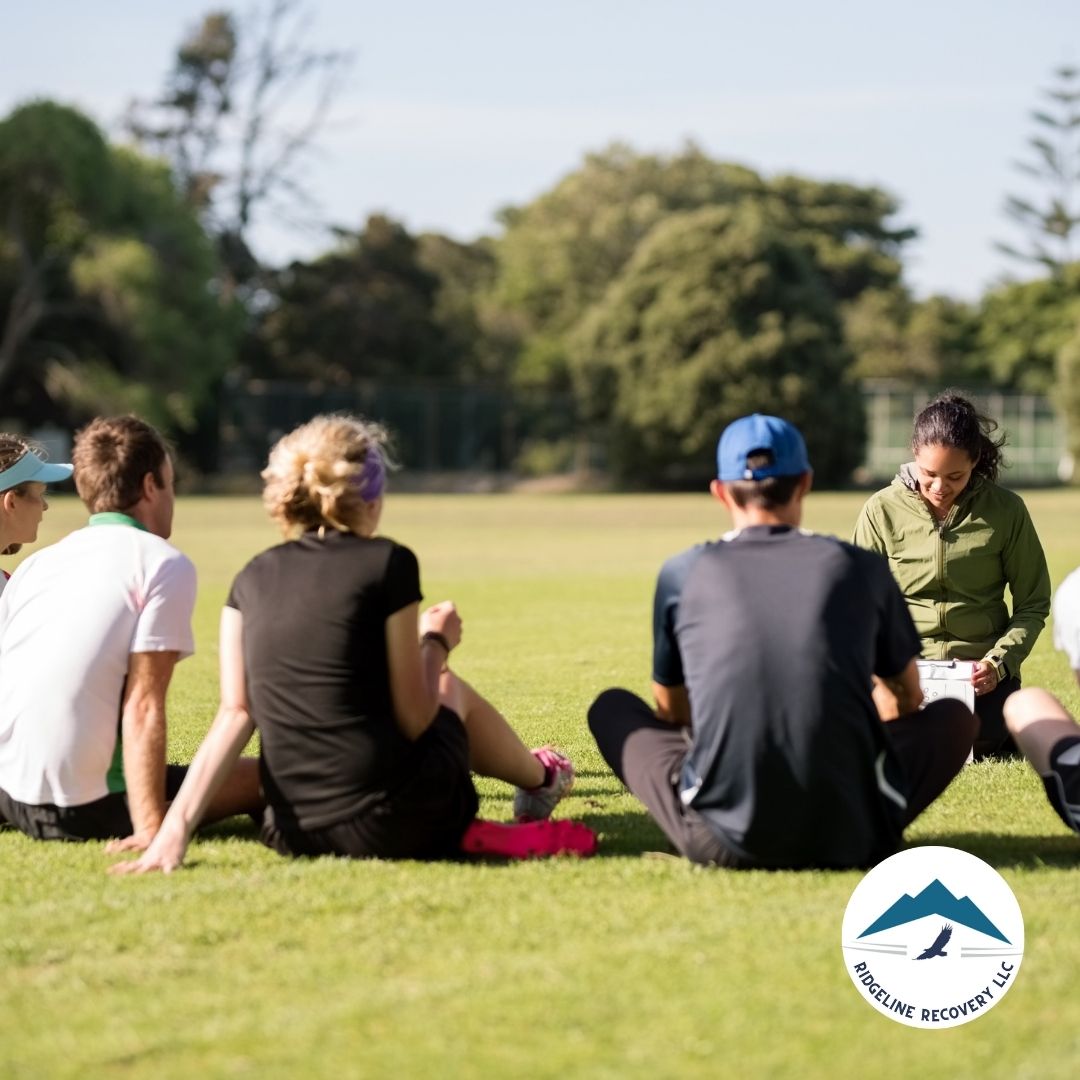The Reality of Addiction Recovery Columbus
Addiction Recovery Columbus?
If you’re here, you or someone you know might be fighting one of the toughest battles there is: addiction.
And let’s be honest—it’s overwhelming.
You’ve probably tried to quit before, maybe even thought you were done for good.
But without the right support and specialized therapy, you find yourself back at square one.
In Columbus, there’s a growing movement focused on addiction recovery that’s changing lives.
This isn’t about quick fixes or “detox miracles.”
This is about building sustainable recovery through specialized addiction therapy services that actually work.
Addiction Recovery Columbus is where you can finally find the right tools to break free for good.
Specialized therapy in Columbus targets not just the addiction but the whole life around it—addressing root issues, mental health, and even family dynamics.
Why Specialized Therapy Works for Addiction Recovery in Columbus
Why is therapy essential to recovery?
Because addiction isn’t just about the substance; it’s about everything that surrounds it—the triggers, the trauma, the mental health issues.
Therapy is like a tailored suit; it fits you and only you.
Columbus has some of the best mental health services and addiction therapy services tailored for specific needs.
Whether it’s trauma-focused therapy, cognitive-behavioral therapy (CBT), or family counseling, the variety in addiction recovery Columbus means you’ll find a program built around your unique story.
Why “Generic” Treatment Programs Often Fall Short
Many treatment programs fail because they don’t address the real issues driving the addiction.
A generic approach is like putting a band-aid on a deep wound—it won’t hold up in the long run.
Here’s where Columbus’s approach to addiction therapy near me stands out.
- Holistic Support: Specialized therapy dives into the core issues—whether that’s mental health or trauma—rather than focusing on detox alone.
- Life Skills Training: Columbus programs teach essential life skills like stress management, resilience, and coping strategies for everyday situations.
- Community Focus: Engaging with a community and support groups through sober living house setups creates accountability and lasting friendships.
In short, addiction recovery Columbus gives you tools to build a life that makes sobriety sustainable.
Different Types of Therapy in Addiction Recovery Columbus
Let’s break down the therapy options Columbus offers for those looking to overcome addiction.
Each one plays a role in helping you build not just sobriety, but resilience.
1. Cognitive Behavioral Therapy (CBT): Rewiring Your Brain
CBT is a core component of many addiction therapy services because it changes how you think and respond.
The idea is simple but powerful: change your thoughts, change your behaviors.
- Identify Negative Patterns: CBT helps you spot thoughts and beliefs that fuel addiction.
- Replace with Positive Coping Mechanisms: When you’re triggered, CBT gives you tools to manage the urge.
- Accessible in Columbus: Many mental health therapist near me options specialise in CBT, making it accessible wherever you are in Columbus.
2. Trauma-Informed Therapy: Healing the Past
A lot of people struggling with addiction have a history of trauma.
In Columbus, trauma-informed therapy is a big part of addiction recovery Columbus programs, especially for those who’ve faced abuse, violence, or other significant trauma.
- EMDR Therapy (Eye Movement Desensitization and Reprocessing): It’s effective in processing traumatic memories.
- Mindfulness and Grounding Techniques: Techniques like meditation or grounding are common in mental health clinics near me, helping people reconnect with the present.
Trauma-informed therapy doesn’t just look at your addiction; it looks at the whole picture.
3. Family Therapy: Healing Beyond the Individual
Addiction impacts everyone in a person’s life.
Family therapy involves the whole family, addressing issues that might have been brewing for years.
- Setting Healthy Boundaries: Families learn how to support without enabling.
- Rebuilding Trust: Addiction breaks trust, but family therapy can help rebuild these relationships.
- Available Through Mental Health Services Near Me: Columbus offers many options for family therapy, and it’s often part of an integrated treatment plan in local addiction treatment centers near me.
4. Medication-Assisted Treatment (MAT): Using Science to Support Sobriety
Medication-Assisted Treatment isn’t about swapping one addiction for another.
It’s using medical support to reduce cravings and help people transition into long-term recovery.
- Vivitrol and Naltrexone: These are non-addictive options that block the pleasure receptors in the brain.
- Methadone and Buprenorphine: These are used under strict supervision to treat opioid addiction effectively.
In Columbus, you’ll find MAT options at vivitrol clinic near me and drug detox centers near me to support your journey.
The Power of Community and Support in Sustaining Recovery
Addiction is tough to face alone.
If you could “just stop,” you probably would have by now.
Community is what makes addiction recovery Columbus powerful—people here aren’t just your neighbors; they’re people who understand what you’re going through.
1. Sober Living Houses: The Power of Environment
Sometimes, the best way to change your habits is to change your environment.
A sober living house near me creates a space where sobriety is the norm, not the exception.
- Structure and Accountability: These houses have rules and expectations, so you’re held accountable every day.
- Supportive Environment: Being around others who are committed to sobriety makes it easier to stick to your goals.
- Easy Access to Mental Health Services Near Me: Many sober living houses are close to mental health clinics near me and other support services.
2. Support Groups: Building Lasting Connections
Groups like AA and NA provide a support system that’s incredibly effective.
It’s not just about the twelve steps in the twelve-step program; it’s about building connections with people who get it.
- AA Third Step: Embracing humility and letting go of control.
- Support Beyond the Program: These aren’t just meeting rooms; they’re communities that often become like family.
Addiction recovery near me in Columbus has a strong network of support groups tailored to everyone’s needs.

Practical Steps for Long-Term Success in Addiction Recovery Columbus
Sobriety is a journey, not a destination.
To make it last, you need to build a life that you don’t want to escape from.
Addiction recovery Columbus isn’t just about getting clean; it’s about staying clean, and these steps can help.
1. Create a Personal Routine
Structure can make or break your recovery.
Build a daily routine that keeps you focused and grounded.
- Morning and Night Rituals: Start and end your day with purpose, whether that’s meditation, exercise, or journaling.
- Set Goals: Whether it’s fitness, career, or personal development, goals keep you moving forward.
- Use Your Community: Engaging with your mental health therapist near me or attending rehab facilities for drugs regularly can help you stay consistent.
2. Identify and Avoid Triggers
Everyone has triggers—places, people, or situations that make them want to use.
Knowing what they are and having a plan can save you from relapse.
- List Your Top Triggers: Write them down and think about ways to avoid or manage each one.
- Have a Support System: Don’t face triggers alone; call a friend, a sponsor, or a mentor.
- Frequent Addiction Therapy Near Me: Regular therapy sessions help keep triggers in check and offer strategies to deal with them.
3. Set Boundaries with Loved Ones
Sometimes, family and friends aren’t as supportive as we’d hope.
Setting boundaries is essential.
- Define Your Needs: Be clear with loved ones about what you need from them.
- Stick to Your Boundaries: Boundaries mean nothing if you don’t enforce them.
Addiction recovery Columbus understands the importance of healthy relationships and offers family counseling as part of many treatment programs.
4. Build New Habits That Replace Old Patterns
If you don’t replace old habits with new ones, you’ll likely slip back into the old patterns.
Here’s what works:
- Fitness: Physical exercise can be a healthy outlet and a way to boost endorphins.
- Hobbies: Try something new—painting, hiking, cooking classes, anything that interests you.
Developing a Resilient Mindset for Addiction Recovery Columbus
Now, let’s dig into one of the most important elements of recovery: mindset.
If you want to make it in addiction recovery Columbus, you have to work on mental resilience, not just physical sobriety.
This is more than just “positive thinking” or pretending everything is fine.
It’s about learning to face discomfort, handle setbacks, and push forward with purpose.
In Columbus, therapists and recovery coaches are big on helping people develop this resilient mindset through different techniques like cognitive restructuring, meditation, and resilience training.
The goal? To train your mind to be as strong as possible for those tough moments when cravings hit or life throws curveballs.
1. The Power of Acceptance in Recovery
Addiction can make us feel like we’re constantly fighting against ourselves.
But there’s power in acceptance.
Acceptance doesn’t mean you’re okay with everything that’s happened.
It means you’re ready to face it, work with it, and let it fuel your growth.
In addiction therapy near me, acceptance-based approaches teach that being okay with feeling uncomfortable is actually a superpower.
Accept the cravings, accept the doubts, and learn to let them pass without acting on them.
Acceptance techniques are often taught by mental health therapists near me, and they’re integrated into many recovery programs in Columbus.
2. Mindfulness Meditation for Addiction Recovery Columbus
If you’re in addiction recovery Columbus, you’ve likely heard of mindfulness meditation by now.
This isn’t just a trend. It’s a proven way to help you manage stress, cravings, and impulsive behaviors.
Mindfulness helps you stay in the moment, which is crucial when you’re tempted to reach for something that isn’t good for you.
Columbus has a number of mental health clinics near me where mindfulness-based stress reduction is incorporated into addiction treatment.
Here’s a simple mindfulness exercise you can try:
- Sit comfortably with your feet on the ground and your back straight.
- Focus on your breathing, taking slow, deep breaths in and out.
- Notice your thoughts without judgment. If a craving or worry pops up, acknowledge it, and bring your focus back to your breath.
With practice, this technique can help you ride out cravings and anxieties, instead of feeling consumed by them.
Integrating Fitness and Nutrition in Addiction Recovery Columbus
Addiction recovery isn’t just about what you don’t do; it’s also about what you add to your life.
A big piece of this is fitness and nutrition.
Your body has been through a lot. Giving it the nutrients, movement, and care it needs can make a massive difference.
In Columbus, you’ll find many addiction recovery centers that emphasize holistic health, including addiction recovery Columbus programs that offer access to fitness and nutrition coaches.
1. Physical Fitness: Building a Strong Foundation for Recovery
Exercise isn’t just good for the body; it’s incredible for the mind.
Physical activity boosts endorphins, dopamine, and serotonin—all those feel-good chemicals that make you less reliant on substances.
Here are some fitness routines that can help during recovery:
- Yoga: Great for relaxation, flexibility, and stress reduction.
- Strength Training: Building physical strength can also build mental resilience.
- Walking or Hiking: Spending time in nature can be a huge boost for mental health.
In Columbus, there are community groups and sober living houses near me that encourage group activities, from hiking to fitness classes.
This is especially helpful because it combines the physical benefits with the support of others who understand the journey you’re on.
2. Nutrition: Fueling Your Recovery
Good nutrition can help repair the damage caused by addiction.
Many addiction recovery Columbus centers have dietitians or nutritionists on staff to help clients create meal plans that fuel healing.
Some nutritional tips for recovery include:
- Eat whole foods: Focus on unprocessed foods—vegetables, fruits, lean proteins, and whole grains.
- Stay hydrated: Dehydration can worsen cravings and fatigue.
- Limit sugar: While it’s tempting to replace drugs or alcohol with sweets, excessive sugar can lead to mood swings and energy crashes.
Nutrition isn’t about going on a diet; it’s about giving your body what it needs to feel and function at its best.
In mental health clinics near me, nutritional guidance is often included in recovery programs to support clients holistically.
Addressing Mental Health as a Core Part of Addiction Recovery Columbus
Mental health and addiction are often closely linked, and it’s not uncommon for someone in recovery to also be dealing with anxiety, depression, or other mental health issues.
In Columbus, a lot of recovery centers recognize this and offer integrated mental health services to tackle both addiction and mental health together.
1. Dual Diagnosis Treatment
Dual diagnosis is when someone has both a mental health disorder and an addiction.
Without addressing both, it’s nearly impossible to make lasting progress.
Addiction recovery Columbus has some top-notch options for people with dual diagnoses.
These programs look at how mental health issues fuel addiction and vice versa, offering therapy, medication management, and support groups that tackle both sides of the equation.
2. Access to Therapists and Counselors
Sometimes, you just need someone to talk to—someone who isn’t a family member or friend but understands addiction and mental health.
Having access to a mental health therapist near me who specializes in addiction can provide a safe space to work through the motions and challenges that come with recovery.
Creating a Post-Treatment Plan: Staying Sober Beyond Addiction Recovery Columbus
Getting sober is hard work, but staying sober is where the real challenge lies.
If you want to make sobriety last, a solid aftercare plan is non-negotiable.
Most addiction recovery Columbus programs include aftercare planning, which might include:
- Regular Therapy Sessions: Weekly or bi-weekly check-ins with a therapist.
- Sober Living Arrangements: For some, a sober living house provides the structure needed after inpatient treatment.
- Support Groups: Continuing to attend meetings, whether it’s AA, NA, or another recovery group, can be crucial.
- Family and Couples Counseling: Rebuilding relationships that were impacted by addiction.
Aftercare is about setting yourself up for long-term success, not just hoping that your initial treatment sticks.
Building a Strong Support Network in Columbus
Community and support are critical for successful addiction recovery.
Addiction recovery Columbus has a lot of community resources for people looking to rebuild their lives in a healthy environment.
1. Peer Support Programs
Peer support programs connect you with others who have walked a similar path.
Programs like these are often available in addiction therapy services and through sober living houses.
2. Utilizing Family Support
Recovery isn’t just about the individual; it impacts the whole family.
Many mental health clinics near me in Columbus offer family therapy, which helps loved ones understand addiction and how they can support recovery without enabling it.
Family support can make or break recovery, so finding programs that include family counseling is often a smart move.
3. Staying Engaged in the Community
One of the biggest predictors of long-term success in recovery is community engagement.
This might mean volunteering, attending community events, or even joining a new hobby group.
Anything that helps you build new connections and interests outside of addiction is a win.
Recognizing and Preventing Relapse
Relapse isn’t failure, but it’s something to be aware of.
The truth is, it’s common, but with the right tools, it’s also preventable.
1. Recognizing Warning Signs
Relapse doesn’t usually happen out of nowhere.
It’s often preceded by signs, like:
- Isolation: Avoiding friends, family, and support groups.
- Cravings and Urges: Feeling more intense or frequent urges to use.
- Neglecting Self-Care: Skipping workouts, eating poorly, or neglecting hygiene.
By recognizing these signs early, you can take action before things escalate.
2. Having a Relapse Prevention Plan
A good addiction recovery Columbus program will help you create a relapse prevention plan.
This might include emergency contacts, strategies for managing stress, and reminders of your reasons for staying sober.
Advanced Strategies in Addiction Recovery Columbus: Building Lasting Change
Getting sober is one thing, but staying sober? That’s where the real work lies.
Addiction Recovery Columbus offers a range of advanced techniques and programs that dive deeper into the mental, physical, and emotional aspects of recovery.
One of the biggest challenges after the initial treatment phase is learning to live day-to-day without falling back on old habits.
Columbus is home to some cutting-edge therapy approaches designed specifically for people looking to build a stable, long-lasting recovery.
1. Understanding and Managing Triggers in Daily Life
Triggers are powerful reminders of past behaviors.
They’re everywhere, from the neighborhood bar to a stressful work meeting.
In addiction recovery Columbus, managing triggers is a top priority, and it’s taught across various addiction treatment centers Columbus Ohio.
Let’s break down the types of triggers:
- Environmental Triggers: Places, objects, or even smells associated with past substance use.
- Emotional Triggers: Strong feelings—stress, anger, loneliness—that make you want to use.
- Social Triggers: People or social settings that remind you of using.
Managing triggers means creating a game plan, identifying these potential pitfalls, and learning ways to navigate around them without giving in to temptation.
Practical Tips for Managing Triggers:
- Create a daily routine: Structure helps reduce impulsivity by making healthy habits automatic.
- Build a trigger “toolkit”: A list of go-to activities or people to contact when you feel tempted.
- Limit exposure: Avoid certain people, places, or things that serve as high-risk triggers.
2. Developing New, Healthy Social Circles
Addiction can take a toll on friendships and family relationships.
One way to rebuild your social life in addiction recovery Columbus is by surrounding yourself with others who understand and respect your commitment to sobriety.
Many sober living houses near me offer community events and group activities, where you can form connections with others on the same journey.
Having people in your corner who “get it” makes a world of difference when the going gets tough.
3. Finding Meaningful Hobbies and Interests
When you’re in recovery, boredom can be dangerous.
If you don’t fill the void left by addiction with something meaningful, it’s easy to slip back into old habits.
Here are a few ways to discover new passions:
- Volunteer: Giving back is a powerful way to get outside your head.
- Join a sports league or class: Columbus has tons of options, from soccer leagues to yoga studios.
- Get creative: Art, music, and writing are incredible outlets for emotions you might not know how to process otherwise.
These hobbies don’t just fill time—they help you develop a new identity that doesn’t revolve around addiction.

Leveraging Therapy for Long-Term Addiction Recovery Columbus
Therapy is a huge part of addiction recovery Columbus.
But not all therapy is created equal, and as you progress in recovery, you may find that you benefit from different types of therapy beyond the basics.
1. Dialectical Behavior Therapy (DBT) for Emotional Regulation
DBT is especially effective for those with a dual diagnosis or who struggle with intense emotional swings.
DBT techniques help you:
- Identify emotions and name them, reducing their power.
- Learn healthy ways to cope with negative emotions, without turning to substances.
- Practice mindfulness to stay grounded, even in tough situations.
This type of therapy is increasingly available in mental health clinics near me, where practitioners help clients manage emotional volatility and build inner strength.
2. Eye Movement Desensitization and Reprocessing (EMDR)
EMDR is a powerful therapy for trauma, which is often at the root of addiction.
By reprocessing traumatic memories, EMDR reduces the emotional charge associated with them, which can be crucial for someone in recovery.
In addiction recovery Columbus, EMDR is becoming more common, especially at centers that treat both trauma and addiction.
For many, it’s a game-changer in addressing the emotional pain that drives addictive behavior.
3. Group Therapy: Finding Strength in Numbers
Group therapy offers something unique: community accountability.
In addiction recovery near me, you’ll find a variety of group therapy options, each designed to help people in recovery connect with others who truly understand.
Whether it’s a twelve-step program or a therapy-based group, the power of shared experiences is undeniable.
Hearing someone else’s story can inspire you, remind you of why you started, and give you tools for handling situations you might not know how to navigate.
Building Financial Stability in Addiction Recovery Columbus
Financial stability is an overlooked part of recovery.
Addiction often leads to financial strain, whether from job loss, healthcare costs, or legal issues.
In addiction recovery Columbus, learning to manage finances can be a crucial step toward independence and stability.
1. Setting Up a Basic Budget
A basic budget doesn’t have to be complicated.
It’s simply about tracking what you earn, what you spend, and setting aside funds for important things like housing, food, and treatment.
Quick Tips for Budgeting:
- Write down every expense: You can’t change what you don’t track.
- Prioritize essentials: Housing, food, and healthcare come first.
- Use cash: It’s harder to overspend when you’re physically handing over money.
2. Employment Resources for People in Recovery
Many people in recovery worry about finding stable employment.
But in Columbus, there are resources and programs designed to help people in recovery build careers.
For instance, addiction recovery centers Columbus often partner with local organizations that provide job training, resume help, and interview preparation.
Resources include:
- Nonprofit organizations: Many nonprofits in Columbus offer vocational training for those in recovery.
- Apprenticeship programs: Certain trades welcome people in recovery and offer hands-on learning experiences.
- Recovery-friendly employers: Some companies actively seek out and support employees in recovery.
3. Understanding and Managing Debt
If debt is a part of your past, you’re not alone.
For many, tackling debt is a part of recovery, and Columbus has financial counseling services, often found at mental health clinics near me, that can help you create a plan.
Enhancing Your Recovery with Community Support in Columbus
No one succeeds in recovery alone.
In addiction recovery Columbus, you’ll find that community is key.
When you’re feeling weak, having a strong support system can help you stay the course.
1. Attending Local Support Meetings
Support meetings are the backbone of many recovery journeys.
Whether you prefer a traditional twelve-step program or a secular support group, Columbus has an option that fits.
Some popular meeting formats include:
- AA and NA Meetings: These are widely available across Columbus and provide a structured twelve-step approach.
- SMART Recovery: A science-based alternative to the twelve steps, focused on self-management.
- Refuge Recovery: A Buddhist-inspired program that combines meditation with support.
2. Reaching Out to Local Organizations
In Columbus, nonprofits and community organizations are dedicated to helping people rebuild their lives after addiction.
These groups offer everything from housing assistance to job placement and emotional support.
Some notable Columbus organizations include:
- Amethyst: A Columbus-based organization that offers housing and recovery support for women.
- Southeast Healthcare: Provides a wide range of services, from addiction treatment to housing assistance.
- Ohio Guidestone: Offers comprehensive services for mental health, addiction recovery, and family support.
Preparing for Life’s Curveballs: Resilience in Addiction Recovery Columbus
Recovery is a lifelong journey, and life isn’t going to stop throwing challenges your way.
That’s why building resilience is essential for success in addiction recovery Columbus.
1. Learning to Set Boundaries
Boundaries are about protecting your mental and emotional health.
They’re especially important in recovery, where it’s easy to get pulled back into old relationships or habits.
Tips for Setting Healthy Boundaries:
- Be clear: Decide ahead of time what’s acceptable and what isn’t.
- Communicate honestly: Don’t be afraid to tell people what you need to protect your recovery.
- Practice saying “no”: It’s a small word, but incredibly powerful.
2. Developing Coping Skills for Stressful Situations
Life will continue to bring stress, but how you handle it is up to you.
Stress management techniques taught in mental health hospitals near me or mental health clinics near me can make a big difference.
Popular techniques include:
- Deep breathing exercises: Quick and effective for calming your nervous system.
- Visualization: Picture a place where you feel safe and relaxed.
- Exercise: Physical activity is a proven stress-buster and can be a healthy outlet for pent-up energy.
FAQs on Addiction Recovery Columbus
Q: What’s the best type of therapy for addiction recovery?
A: It depends on your needs, but many find success with a combination of cognitive-behavioral therapy, trauma-informed therapy, and family therapy.
Q: Can family members join addiction therapy sessions?
A: Absolutely. Family therapy is often a big part of addiction recovery Columbus because addiction affects the whole family.
Q: Is medication-assisted treatment available in Columbus?
A: Yes, MAT options, including vivitrol clinics near me, offer support through medications like Vivitrol, which help with cravings and make sobriety more manageable.
Q: What if I relapse? Does that mean treatment failed?
A: Not at all. Relapse is common, and it’s often a step in the recovery journey. What’s important is learning from it and getting back on track.
Call Us Now!
If you or a loved one is struggling with heroin or alcohol dependency, reach out to Ridgeline Recovery Center in Columbus, Ohio, today. At Ridgeline Recovery, we offer a path to hope and healing. Our comprehensive Addiction Recovery services include Addiction Therapy, Addiction Treatment, Vivitrol Clinic and specialized Mental Health Services designed to support your journey to recovery.
We provide Aftercare Programs and Peer Support to ensure you have ongoing assistance after treatment. Our dedicated team offers Case Management and Child Services for those needing extra support. For individuals who prefer a faith-based approach, we offer Faith-Based Recovery options.
Our programs feature Group and Individual Counseling, along with Medication-Assisted Treatment (MAT) to address your unique needs. We also have an Intensive Outpatient Program (IOP) and a Partial Hospitalization Program (PHP) for more structured care.
Our team includes Registered Nurse Services, Psychiatric Services, and Therapeutic Behavioral Services (TBS) to provide comprehensive support throughout your recovery process. We work with various Insurance Coverage plans to help you access the care you need.
Don’t wait—contact us now to start your journey toward a brighter future with Ridgeline Recovery.
For more stories and information Contact Us, visit our Blog page and Stories & Highlights.







